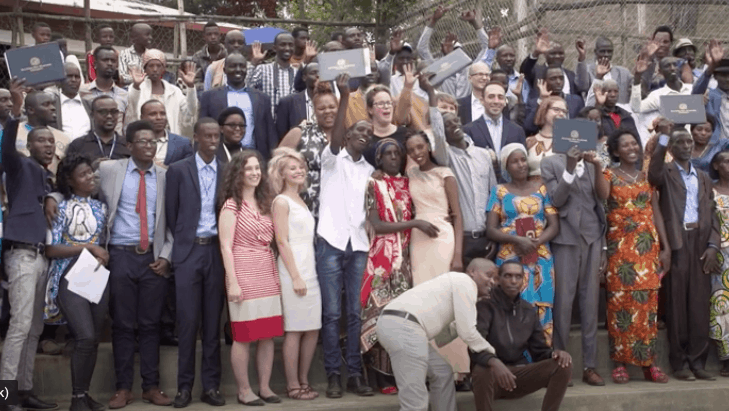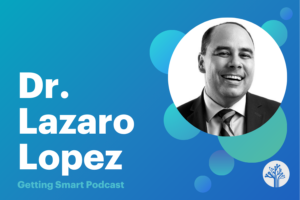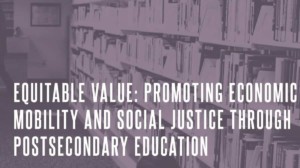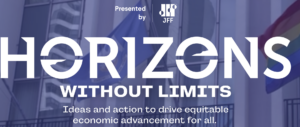A Path to Higher Education and Employment for Refugees

There are at least 70 million displaced people worldwide. Almost half are young people–and few of them have any chance of going to college and gaining innovation economy employment. Chrystina Russell and Southern New Hampshire University (SNHU) are changing that.
Almost a thousand refugees in five countries are enrolled in SNHU degree programs–two thirds are taking classes and a third are in internship programs. An astounding 90% of the scholars are on track to graduate.
Dr. Russell is Executive Director of Global Education Movement (GEM), SNHU’s commitment to serving refugees with a flexible, free, applied degree pathway.
With 135,000 online learners, SNHU is one of the largest universities in the world. For the last decade SNHU has been working on a self-paced asynchronous curriculum. Working adults in the US have benefited from accelerated degree completion with the program for more than five years. A 19 year old Los Angeles learner recently finished a BA in an extended high school program using the curriculum.
By completing 60 projects, learners develop and demonstrate key workplace competencies. Learners receive expert feedback on their projects and resubmit them until they have achieved mastery. Some of the expert reviewers are SNHU graduates in Rwanda.
As outlined in the GEM Annual Report, the program is active in refugee camps in five countries: Kenya, Rwanda, Malawi, South Africa, and Lebanon.
In Rwanda, 95% of the students have graduated and 88% received job placement. Graduates earn more than double the income of their peers. Across all sites, 941 refugees have earned A.A. degrees and 491 have earned B.A. degrees. It is the largest humanitarian effort to extend higher education access to refugee camps.
Before SNHU, Russell was Chief Academic Officer at Kepler in Rwanda. She spent a decade as a teacher and founder of an innovative middle school in New York City. She credits the success she’s had since on the leadership development, the can-do attitude, and data-driven innovation opportunity she had in the NYC iZone.
Seed funding from Audacious Project over the past two years sponsored the GEM program in five countries. There is huge demand for the program, with thousands of applicants for each seat.
They are seeking funding to scale their solution to 15 countries over the next five years, lowering the cost of the degree, and enabling over 16,000 refugees across 23 sites to improve their futures.
Similarly, University of the People currently enrolls thousands of refugees and will be launching a new degree program in Arabic to meet increasing demand. This degree offering will provide refugees an American, accredited two-year Associate Degree in Business Administration, which can be their first step to earning a bachelor’s degree.
For more, see:
- Podcast: Connie Yowell & Paul LeBlanc on Extending Access to Higher Ed from Chicago to Rwanda
- Accessible, Affordable, Achievable HigherEd for Working Adults
- Southern New Hampshire Reshaping HigherEd Landscape
Stay in-the-know with innovations in learning by signing up for the weekly Smart Update.
This blog was previously posted on Forbes.








0 Comments
Leave a Comment
Your email address will not be published. All fields are required.